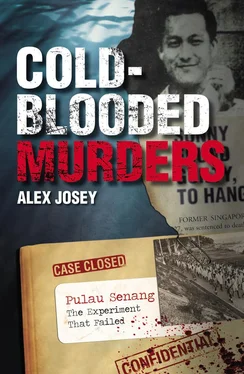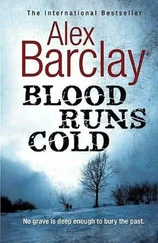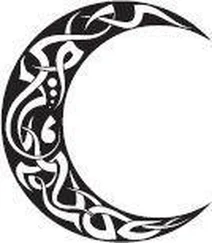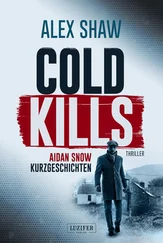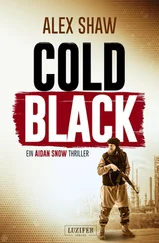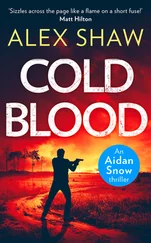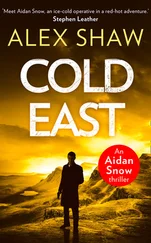Alex Josey - Cold blooded murders
Здесь есть возможность читать онлайн «Alex Josey - Cold blooded murders» весь текст электронной книги совершенно бесплатно (целиком полную версию без сокращений). В некоторых случаях можно слушать аудио, скачать через торрент в формате fb2 и присутствует краткое содержание. Жанр: Криминальный детектив, на английском языке. Описание произведения, (предисловие) а так же отзывы посетителей доступны на портале библиотеки ЛибКат.
- Название:Cold blooded murders
- Автор:
- Жанр:
- Год:неизвестен
- ISBN:нет данных
- Рейтинг книги:5 / 5. Голосов: 1
-
Избранное:Добавить в избранное
- Отзывы:
-
Ваша оценка:
- 100
- 1
- 2
- 3
- 4
- 5
Cold blooded murders: краткое содержание, описание и аннотация
Предлагаем к чтению аннотацию, описание, краткое содержание или предисловие (зависит от того, что написал сам автор книги «Cold blooded murders»). Если вы не нашли необходимую информацию о книге — напишите в комментариях, мы постараемся отыскать её.
Cold blooded murders — читать онлайн бесплатно полную книгу (весь текст) целиком
Ниже представлен текст книги, разбитый по страницам. Система сохранения места последней прочитанной страницы, позволяет с удобством читать онлайн бесплатно книгу «Cold blooded murders», без необходимости каждый раз заново искать на чём Вы остановились. Поставьте закладку, и сможете в любой момент перейти на страницу, на которой закончили чтение.
Интервал:
Закладка:
The judge pointed out that even at that stage the accused said he had not become anxious. He was in no way perturbed or alarmed. He pulled the guide line three times to signal to her to surface and then went back to attend to his tank. Two minutes later he again pulled the guide line and even at that stage, he said, he had not decided to abandon the expedition, let alone become alarmed about Jenny. He said he wanted her to come up to preserve the air in her tank so that they could go down again together. “What do you think of that, gentlemen of the jury? If that was a genuine reason why then did he not signal to her to come up long before? He said he had seen no air bubbles breaking on the surface of the water. He was still not alarmed and he made, to me at any rate, an astonishing statement: that she might have wandered off on her own or that she was playing a game with him and hiding under the boat. It seemed to me quite remarkable. He even said that she might have swum underwater and landed at one or other of the islands. He said he seriously thought so at the time, but he definitely did not think so now. So what do you think?”
Ang said he looked under the sampan on both sides but could see no air bubbles. He and the boatman scanned the shore on both sides to see if there were any traces of footsteps or other signs of life. “It was only then, and then only, for the first time, that the accused realized that Jenny might have got into trouble. You may think he took a long time to do so.”
Then Ang became alarmed and they looked for air bubbles. He vaguely remembered a telephone on St John’s Island. Yusuf confirmed this and off they went to phone the Marine Police. “Ang told us he never asked Yusuf to go faster because, he said, the sampan was going flat out. He said he might have shed a tear, but without knowing it. He maintained that he did run to the phone, but Jaffar denied he ran at all.”
The judge returned to the scene of the tragedy and the ‘curious discussion’ about the weightlessness of a tank in water. “He thereupon took the small tank that Jenny had used on her first time down and placed it in the sea. The tank sank because, according to Ang, it had been painted-painted, if you please, gentlemen of the jury. He put it in the water because he was under the impression that tanks could float, whether full or empty. Do you think a coat or two of paint would have any effect?”
Here the judge erred. As defence counsel pointed out during the appeal, one of the accused’s brothers had said the tank was painted. “I asked one of the experts if painting the tank was likely to increase its weight. But the accused never said so,” explained Mr Coomaraswamy.
Justice Buttrose said that Sunny Ang’s explanation for not going into the water himself was because he saw no air bubbles: that was the main reason. He presumed she was not there, and there was no point in diving to look. He also thought she might have been attacked by sharks. He also told us he could only hold his breath underwater for some three-quarters of a minute to a minute.
The judge called attention again to the three letters Ang wrote to the insurance companies the following day claiming under the policies. “That, gentlemen of the jury, in brief is the outline of his defence: an accident in which he was not concerned in any way, and had no part. He does not know what happened. He did not intend or contrive her disappearance. He neither cut the flipper, nor in any way tampered with the equipment. He explained why he did not go down to look for her.”
Ang called three witnesses, firstly a gentleman by the name of Yeo Tong Hock, who described himself as, in effect, a brothel-keeper, and admitted he was a pimp. What joy the defence got out of his evidence, the judge said, was something he failed to understand. “Because if he came to bless the case for the defence, he left to curse. How can you be left under any doubt, members of the jury, that now he is quite sure, absolutely sure, that the girl whom he saw in Penang and later in Kedah is not Jenny?”
The judge was highly critical of Mr Coomaraswamy’s statement that the witness had been kept out of the way, incommunicado, by the Penang police for 10 days before the trial. “You heard Mr Coomaraswamy say that from the Bar. Now, a more ill-considered and irresponsible statement from the Bar I have yet to hear in a case of this gravity and magnitude. There is not a shred of evidence to support it. It was emphatically denied by the witness himself.”
The judge went on to deal briefly with the evidence given by Ang’s younger brother, Richard Ang, and the two police officers called by the defence to give evidence about the car accident. Justice Buttrose said he failed to appreciate the relevance of that evidence at all; he did not intend, he said, to waste any time on it, ‘except to remind you again that the corporal said it was not a sharp bend in the road but a gentle bend’. Ang had said the bend was sharp.
What reliance, asked the judge, could be placed on Sunny Ang’s evidence? He said he was a truthful person. He did, however, admit to telling a few white lies. ‘That was the opening gambit. On being pressed he admitted to telling lies to the insurance companies, not white ones, but full-blooded red ones. What he told the insurance companies were quite untrue. ‘Yes, I lied to them, but they were necessary because I had to get my commission’, he explained, in a sort of off-handed manner, as if that not only explained them but excused them. But what you must consider, in weighing up his evidence, is: if the accused will lie in order to get commission on the sale of insurance policies, what will he do for half a million dollars, or for even higher stakes?”
The judge, nearing the end of his summing up, came to the gloves. Ang had admitted that he brought two pairs of gloves with him in the sampan on 27 August 1963, one dark blue and the other dark brown. He said they were to wear them because the coral they were going to collect were sharp and the gloves would prevent their hands being cut. Ang had said this was an expedition for the express purpose of going coral-hunting. “When Jenny went down the second time the intention was to collect coral, and she was to help Ang carry them. Ang said it was necessary to wear these gloves and he said that Jenny did wear them when she went down on the second occasion, never to return. That,” said the judge, “would appear to be a complete falsehood, gentlemen of the jury, because both pairs of gloves were still in his bag which he had left that night at the police station. They were produced before you. If Jenny had been wearing the gloves there would have been only one pair left for you to see.” When he saw them in court, Ang was forced to admit that they appeared very new, that they had never been in the water. What then, became of his evidence that they were going down to collect coral? “Did he ever intend that afternoon that they should? Ang was unable to offer any explanation as to how the gloves came to be in the bag.”
Ang denied ever telephoning Rutherford (of one of the insurance companies). He was shown his diary, ‘that red-back diary’. He admitted that it was his and in his handwriting. “And then we had a succession of astonishing answers which speak much for his powers of improvisation and ingenuity under pressure.” The judge thought his reference to Ruth-R-U-T-H-as Ruth Tan a remarkable effort. “Finally on being shown the entry alleged to be referring to Rutherford and beside it ‘on leave in the United Kingdom’, that did stump him. He said he did not know what it meant. The only thing he did maintain was that it did not refer to Rutherford, who was on leave in the United Kingdom.”
The judge dealt briefly with the ‘astonishing episode of the letters’ which Ang wrote to the Under-Treasurer of Gray’s Inn. One of Ang’s ambitions was to become a barrister-at-law. “Though never a student at the University of Singapore he wrote that he was. What a sorry performance this was! First of all he said he never sent the letter: then he could not remember if he sent it: then, on being shown the letter he said he did not think he sent it because it was torn. He said he never despatched torn letters. Finally, on being shown the postmark he said, ‘I must have sent it’. Quite a remarkable performance, don’t you think?”
Читать дальшеИнтервал:
Закладка:
Похожие книги на «Cold blooded murders»
Представляем Вашему вниманию похожие книги на «Cold blooded murders» списком для выбора. Мы отобрали схожую по названию и смыслу литературу в надежде предоставить читателям больше вариантов отыскать новые, интересные, ещё непрочитанные произведения.
Обсуждение, отзывы о книге «Cold blooded murders» и просто собственные мнения читателей. Оставьте ваши комментарии, напишите, что Вы думаете о произведении, его смысле или главных героях. Укажите что конкретно понравилось, а что нет, и почему Вы так считаете.
